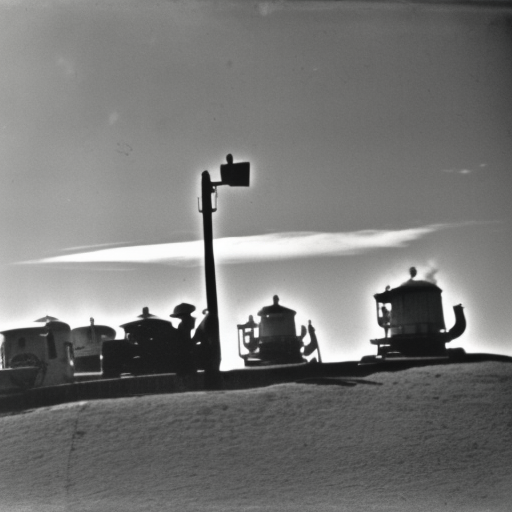The Teapot Dome Scandal
The Teapot Dome Scandal was a political scandal that occurred in the United States during the 1920s. It involved the illegal leasing of federal oil reserves by the Secretary of the Interior, Albert B. Fall, in exchange for personal bribes. The scandal tarnished the reputation of the Harding administration and highlighted the corruption prevalent in American politics at the time.
Background:
In the early 20th century, the United States had significant oil reserves located on federal lands, particularly in Wyoming and California. These reserves were managed by the Department of the Interior, which was responsible for leasing them to private companies for extraction. The Secretary of the Interior, Albert B. Fall, was appointed by President Warren G. Harding in 1921 and was given control over these leases.
The Scandal:
Fall, who was known for his close ties to the oil industry, secretly leased the Teapot Dome oil reserve in Wyoming to the Mammoth Oil Company, owned by Harry F. Sinclair, without competitive bidding or proper authorization. In return, Sinclair provided Fall with substantial bribes, including cash and cattle. Similarly, Fall also arranged for the Elk Hills oil reserve in California to be leased to Edward L. Doheny’s Pan American Petroleum and Transport Company in exchange for personal favors and financial benefits.
Investigations and Trials:
The scandal came to light in 1922 when a Senate investigation was launched to examine the suspicious leases. The investigation revealed the illegal activities of Fall and his connections to Sinclair and Doheny. The public was outraged by the blatant corruption, and the scandal became a major topic of discussion and criticism.
Fall was eventually charged with bribery and conspiracy, becoming the first Cabinet member in U.S. history to be convicted of a felony while in office. Sinclair and Doheny were also indicted on charges of bribery. The trials that followed were highly publicized and attracted significant media attention. Fall was found guilty and sentenced to one year in prison, while Sinclair and Doheny were acquitted.
Impact:
The Teapot Dome Scandal had far-reaching consequences for American politics and governance. It exposed the deep-rooted corruption within the government and eroded public trust in elected officials. The scandal also highlighted the influence of powerful interest groups, particularly the oil industry, in shaping government policies and decisions.
The fallout from the scandal led to significant reforms in the federal leasing system and increased scrutiny of government contracts. It also prompted calls for greater transparency and accountability in government operations. The Teapot Dome Scandal served as a wake-up call for the American public, who demanded higher ethical standards from their leaders.
Legacy:
The Teapot Dome Scandal remains one of the most notorious political scandals in American history. It serves as a reminder of the dangers of unchecked political power and the need for robust oversight and accountability mechanisms. The scandal also had a lasting impact on the reputation of the Harding administration, which was already plagued by allegations of corruption and scandal.
In conclusion, the Teapot Dome Scandal was a significant event in American history that exposed the corruption and influence-peddling prevalent in the government during the 1920s. The scandal led to reforms and increased public scrutiny, highlighting the importance of transparency and accountability in governance.












